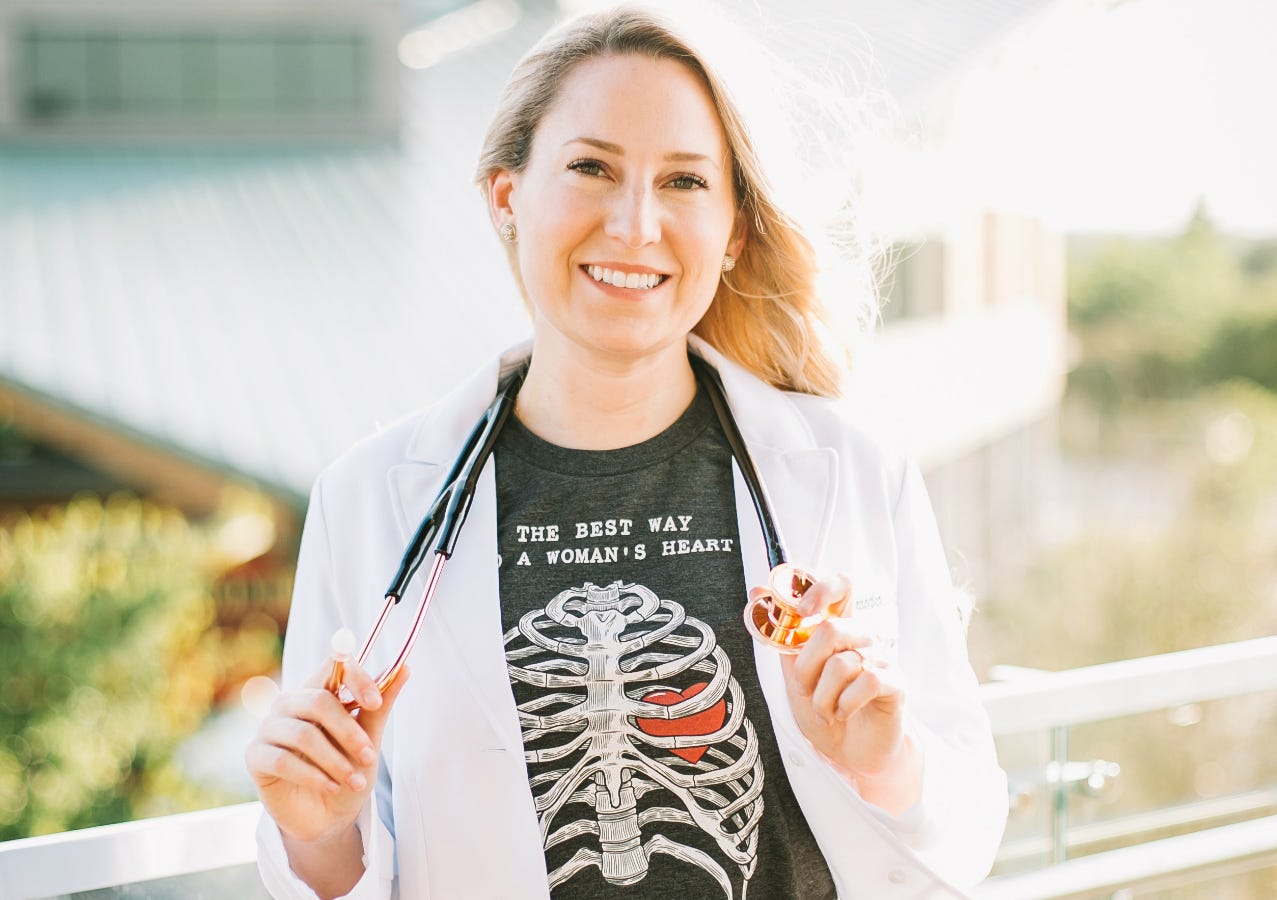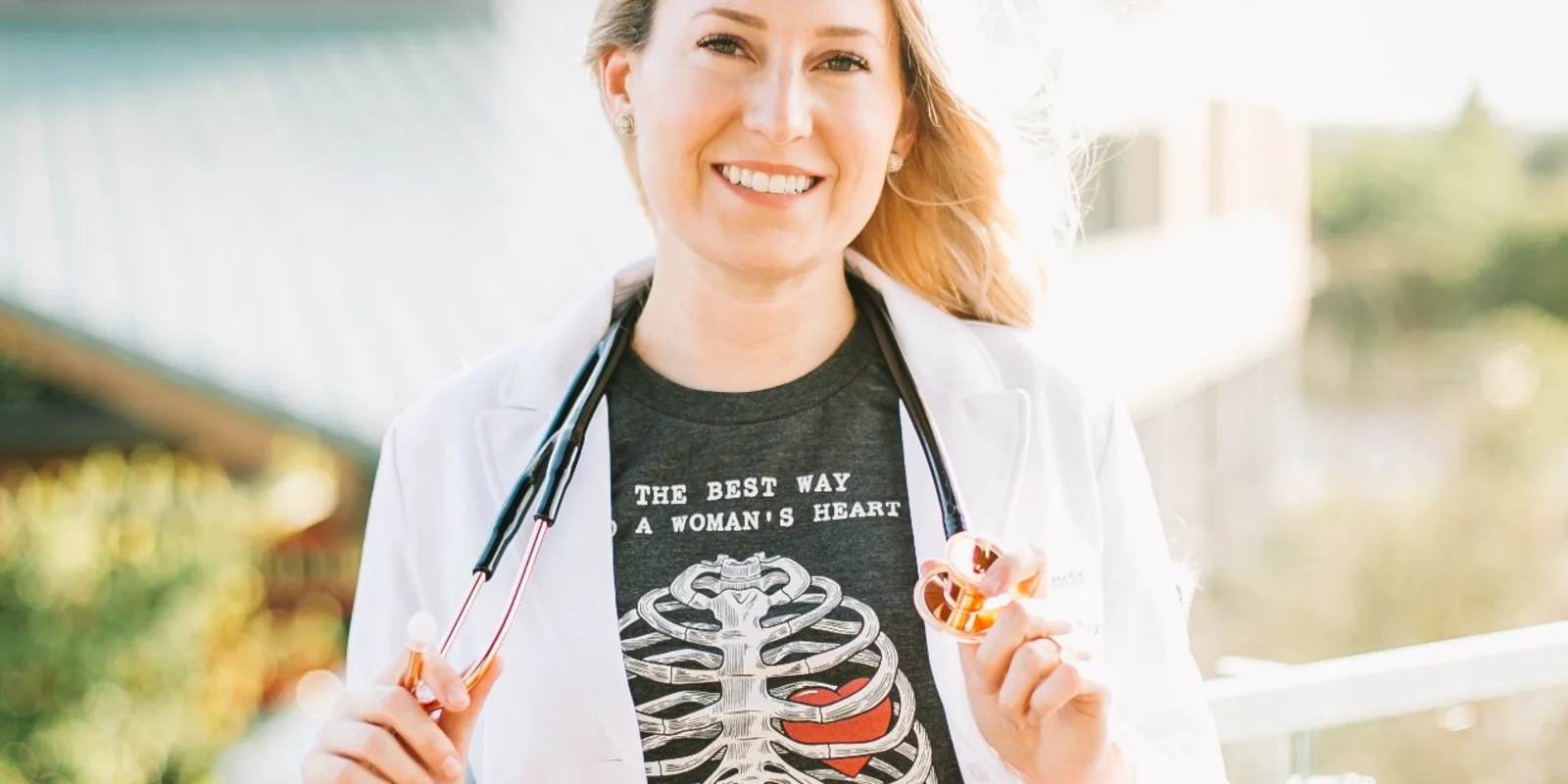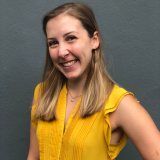
It started as an obsession with anatomy and physiology.
Andrea Benedict, PA-C couldn’t get enough of the human body. She enjoyed all of it too much to simply pick one thing to specialize in. So, she became a Physician Assistant.
“I had major anxiety around the thought of committing to a specific specialty for my entire career,” says Benedict. “Once I realized that being a PA offered me the ability to diagnose and treat patients and be intimately involved in their care, yet allow me to change specialties throughout, I was immediately sold.”
Another thing Benedict was nervous about? Making the foray into social media. But one patient changed all that.
A lot of her patients had been perfectly healthy two weeks ago, and then would have symptoms over the span of a few days, and come in to receive a diagnosis that was potentially terminal. This stem cell transplant patient in particular stuck Benedict because they reminded her of herself.
“They were active, they were my same age, they had a similar personality, and they were feeling perfectly fine two weeks prior,” Benedict says. While she sat listening to the planned treatment for a patient that in another reality could be her, her life was put into perspective.
“Very few people are able to see behind the curtain into the worst time in a person’s life,” Benedict says. “To be able to experience that day in and day out is probably why I do some of the crazy stuff I do_—_go to Africa and travel the world and do business ventures, even though it’s not something I know anything about.”
She started to say “yes” to things like moving to Austin, traveling to South Korea and the Philippines, and moving into the Instagram world of social media. She started LifeAsAPA, which started as a platform for advocacy and has transformed into a collection of information about the PA profession for pre-PA students to learn about the job and for current PAs to share their own experiences.
Running the Instagram account provided Benedict with a creative outlet, but she found herself wanting to do more. So she started Medthusiast, a clothing company that focused on medical puns. It allowed her to be creative and silly while incorporating her obsession with anatomy.
“I decided to take that really nerdy side I have_—the medical nerdiness, the side of me that loved anatomy puns and medical humor—_and put it on clothes that I wanted to wear. I was like, ‘Hey, at the very least I’ll get sweet t-shirts out of the deal even if I never sell anything.”
As for taking that leap into social media and entrepreneurship, Benedict wishes she would have done it sooner, and says that anyone who is thinking about starting something, should.
“I think there’s a lot of people who are gifted in some weird thing but they just don’t have the guts and the courage to investigate that further or flirt with it a little bit more,” Benedict says. “I would just hope that people who have interests, no matter how weird or how odd they may seem, just at least investigate it because at the very least it will provide some therapeutic benefit just to explore creative passions outside of our day-to-day healthcare routine.”






